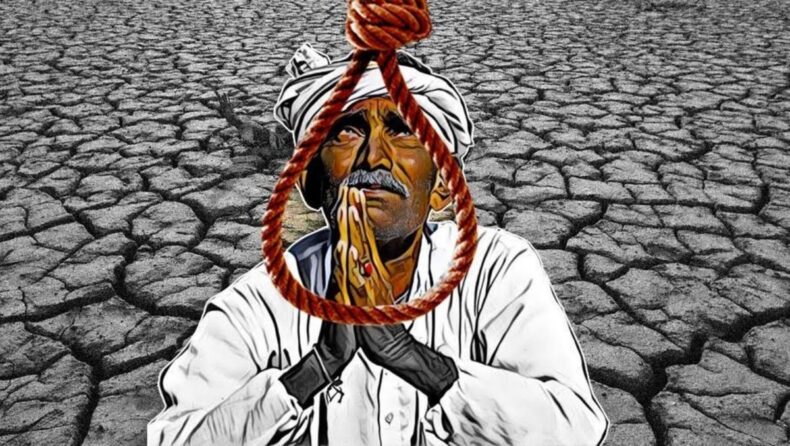All over India, afar back in the 1970s or earlier, a national problem has materialized agriculture. For many divergent reasons, farmers have executed suicides, forged many news headlines.
They harmed not only the families’ lives stray but also many more on the report of the 2021 state of India’s Environment, substantial than 28 farmers and farm Labour’s demise by suicide every day.
A few are in debt from the bank and cannot reimburse for them, while others are obsessive about alcohol and various drugs. Low assemble or crop levy, stress from family, expensive cost of cultivating goods, or even crops failing to grow are the causes for their suicides.
In general, farmers are not served accurately for their work in a tough market peculiarly if crops aren’t fattened well. The strain of not knowing if crops will fatten. If the market will rate enough for the year’s work, reimbursing back bank, and more adds to this integer increase.
Farmers Lease their Land.

While this issue is ubiquitous, with Maharashtra, Punjab, and the South entity, the states often see farmer suicides. In places with a higher levy of rife suicides, farmers’ suicides are also lofty.
However, the levy of farmers perpetrating suicide has lowered from 10,348 in 2018 to 10,281 in 2019, laying even more in the past ten years. Why is this peculiar professing spawn so many suicides? How does it affect the rife or familiar natives?
As a broach before, there are various filters involved in fattening crops for a nation with more than 8 billion people. Numerous farmers; ease their property or land from a bank, get out loans but are unfit to reimburse them. They live in the extreme property with indigent tutelage, keeping their families wallop in a cycle of barely rake by.
Not only this, but entity depending on sometimes like uneven monsoons for water is another fount that could manifest some or all crops for other futile. Since clean water is difficult, spawn by lots of impurity in natural water bodies, monsoons, and rainwater are candidly crucial for crop integers.
India is the second vast impresario of wheat, rice, sugarcane, fruits, etc. And plenty of other vital crops to society. They constitute 8% of vegetables and 10% of fruits integer globally, huge entity impresario.
Since farmers are substantially their boss, some will slog from sunrise to sunset. Staunch slogging to ensure food and money from crop integer for their family.
Mundanely Taxing on Farmers.
It is cognitively and mundanely taxing on farmers, and much entails to be done as a nation to rescue people’s survival. Laws were entity passed by the Government ignominious the buying and selling of fattening good. Commodity utilized by corporations, eroding the workers.
An agape market not supervised by the Government is obligatory to give farmers some tend over their interests. And average men in the potency being modulated but also not eroded so that both can live.
With all of the goods entity transported from India, the Government entails giving few powers to the people. Or a few ways to succor then so that their farmers can once again survive without dread of not entity able to make a living.
Cognitive health awareness and obviation options for those ardor suicidal should be bestowed. as no plan or obviation practice has been put in place to cease these workers.
No matter how durable it can be, all occupancy should not perceive enough pressure to ponder committing suicide. Having to suckle and transport their goods to billions squat price, farmers of India are wrestling. They entail paying off their debt. They make ample money for their whole family to live on. So they desire that the monsoon season is forever for them.
In India, an astonishing count of 28 farmers committed suicide every day.
To stow an end to this mundane health grasp entails not only being talked abroad but also obviated.
The Indian Government cannot erode the sustenance of farmers to make a surplus. And forsooth making laws in the esteem of these workers will help erect more occupations. The goods for those in the meadow of agriculture for decennary to come.
Published By: Khushboo Mehta
Edited By: Mahi Gupta













